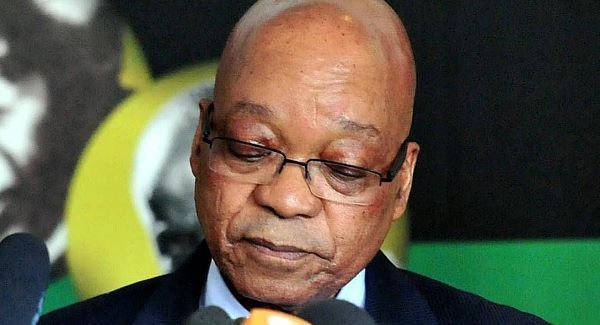THE African National Congress (ANC) predictably won the 2014 national and provincial elections with a healthy 62.1 percent share of the vote.
The party had experienced a tumultuous time in parliament, with growing calls for an investigation into President Jacob Zuma because of state monies spent on his private home in Nkandla. In the wake of the ANC 2014 election victory, Zuma chose to gloat and mock those who had made an issue about Nkandla.
He quoted Shakespeare’s Macbeth extensively — one passage stands out: “A poor player that struts and frets his hour upon the stage, and then is heard no more: it is a tale told by an idiot, full of sound and fury, signifying nothing.”
Zuma interpreted the ANC’s victory at the polls as a vindication of himself and the Nkandla debacle. And I asked myself, “So is the president actually saying that, for voters to show that they disagreed with Nkandla, they should not have voted for the ANC?” Two years later, in the local government elections, the South African public responded to Zuma.
The ANC suff ered its worst results up to that point. It failed to get over 50 percent of the votes in all the metropolitan areas in Gauteng and even got below 50 percent in the Nelson Mandela metropolitan city in the Eastern Cape. The people had spoken.
They were not willing to support an ANC that did not begin to acknowledge that it had a corruption problem. Our political discourse is dominated by the ANC, which straddles it like a modern-day colossus. Every political party in the South African landscape defines themselves in terms of the ANC. Indeed, in elections gone by, the Democratic Alliance (DA) foolishly attempted to portray itself as the successor to the ANC’s Nelson Mandela.
Even the Economic Freedom Fighters talks more about the ANC than its own policies and vision. The founding leader of the Inkatha Freedom Party Mangosuthu Buthelezi was begging the ANC to take him back as a member before he died. Over the past couple of weeks there have been two more new arrivals on the political scene.
The one is the Change Starts Now party of millionaire Roger Jardine, former chairperson of one of South Africa’s major banks, First Rand. Jardine is a direct beneficiary of ANC deployment and black economic empowerment policies.
The other is the newly registered uMkhonto weSizwe party (MK), named after the ANC’s dissolved military wing. Its fame and notoriety certainly got an adrenaline shot when the self-same Jacob Zuma announced on 16 December that he intended to vote and support the MK party and not the ANC.
The reality is that, despite the opposition parties’ lack of attraction, the ANC is truly haemorrhaging support. It is not a fait accompli that it will win next year’s elections. On the contrary, the DA has been acting as if it expects to win and many of the polling companies are projecting that the ANC will get below 50 percent.
But, in general, it seems that the opposition parties have learnt nothing over the past nearly 30 years of ANC rule. They seem to really believe an overwhelming number of South Africans think that the country was better off under apartheid.
They fail to acknowledge that there are no-fee schools, as well as a government-run bursary scheme for tertiary education. There are free public hospitals and clinics. There are free houses for poor South Africans.
There is a range of grants, for poor and unemployed people, old and young people, and government assistance for disabled and sick people. Since 1994, under the rule of the ANC, a visible black middle stratum has been formed. To say that South Africa is worse off today than under apartheid is to tell ourselves lies — it is infi nitely better.
In the ANC’s final manifesto review workshop, which took place at the Alberton Civic Centre on December 15, the president, Cyril Ramaphosa, and secretary general Fikile Mbalula emphasised that the people they met all over the country were clear they still loved the party. They wanted the ANC to continue and they were especially in support of its pro-poor policies.
They did not want loadshedding, the rapid deterioration of public infrastructure, the mismanagement of immigration, the lack of jobs and the many instances of corruption. Indeed, South Africans might agree that the country is better off now than under apartheid but their lives are not improving.
Every day they are reminded of the dysfunctional state, with electricity blackouts; increasing water rationing, crumbling transport and road infrastructure and consistent reports of the near disintegration of large state-owned enterprises such as Transnet, Eskom and SAA. South Africans want an ANC which they can trust or, at the very least, believe. —M&G








